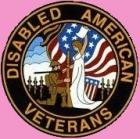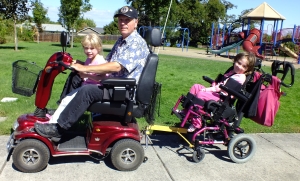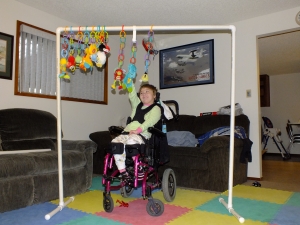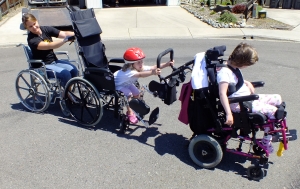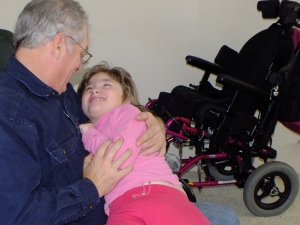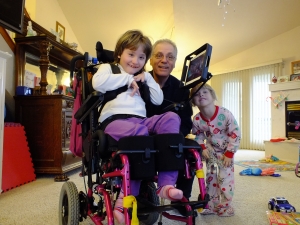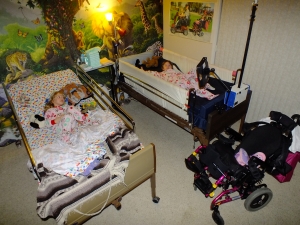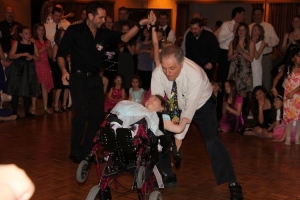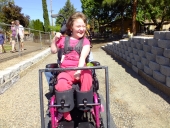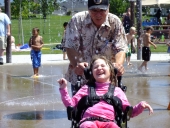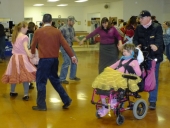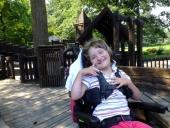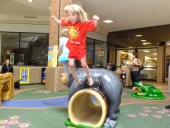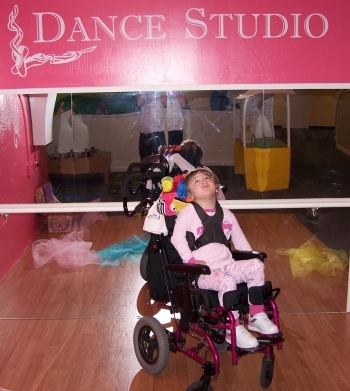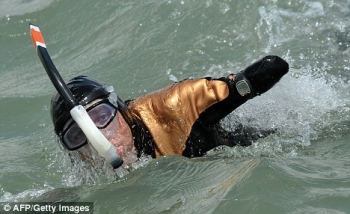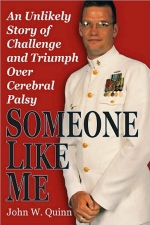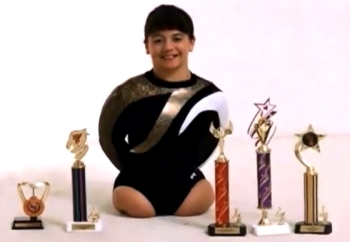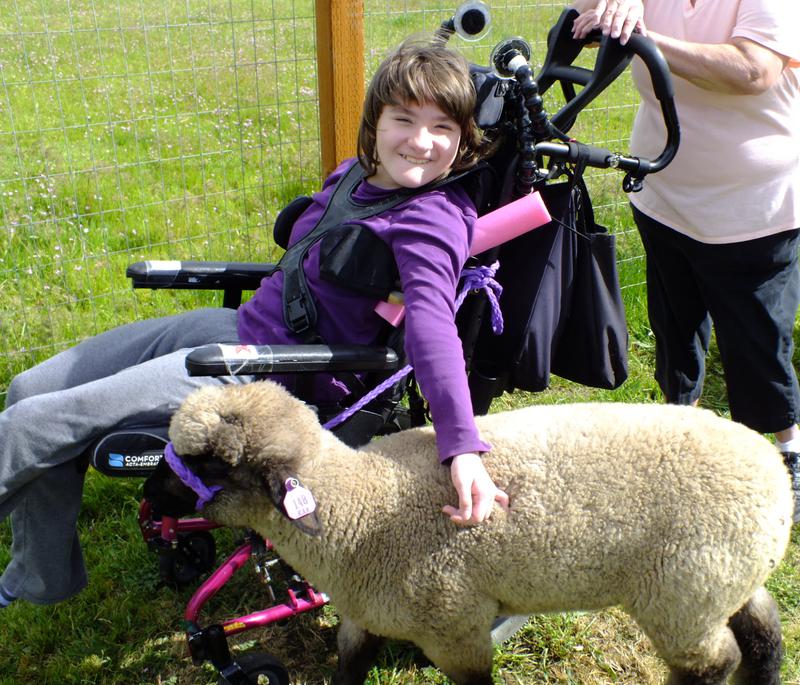Dad: Disabled Veteran: rated 210% service-connected. Heart attack in 2019.
Stroke in 2024.
Hope: Born with HIE (brain injury). Cerebral Palsy, Autism.
Born with Cerebral Palsy & HIE. Quadriplegic, legally blind, nonverbal, feeding tube.
Stevie: Father died when she was 8, Type 1 Diabetes at age 10, a dozen needle pokes a day for the rest of her life.
This web site is dedicated to families with special angels
Other people pity us and thank God their children are not like ours but we are the fortunate ones, for we know the true meaning of love. We call them angels because it comes from the Greek, angelos, meaning messenger. Their message is overcoming in the face of adversity and a glimpse of a world without hate, greed, anger, and strife, a message the world desperately needs to heed.
July 12: The day my grandson died.

Questions Commonly Heard by a Father of 13 Daughters
PLEASE sign our guest book
We value your input
In just over a year, 3 daughters stricken with incurable life
threatening medical conditions, my grandson died, both
parents became disabled, I lost my business.
Something to Consider
Many people believe the greatest thing that can happen to a disabled person is to be healed.
Consider this story in the Bible. People were asking if a man's disability was because of his sin or his parents'. Jesus' response, "Neither hath this man sinned, nor his parents: but that the works of God should be made manifest in him."
Are you like most and assume
Jesus was talking about healing the guy?
We live in a time when medical miracles are common. Most wouldn't think twice about a disability being healed. Even 2000 years ago this man's claim was rejected.
Perhaps what Jesus was talking about is the
"works of God" in our special angels isn't healing them
but what we can learn from them.
Unconditional Love
Most of us love our children but what if your child
required your love/attention 24/7, 365 days a year
but was incapable of returning that love?
Is your love really unconditional?
Happiness and Contentment
What if you lost everything; your sight, your ability to communicate, your ability to move, your ability to even eat and drink? How happy would you be then? In spite of all that Emma is the happiest person I've ever known.
Perseverance, Determination, and
Overcoming in the face of Adversity
I once asked a pastor of a large church how many sermons he'd done along the theme of overcoming in the face of adversity. After pausing for a bit to reflect he said, "Just about all of them." Who better than the disabled to teach us these vital character qualities?
The 7 Deadly Sins: Pride, Envy, Gluttony,
Lust, Anger, Greed and Sloth
Ever wonder what life would be like without these? You have to look no farther than Emma to find out.
The Appropriate Response
When encountering a child like Emma most people offer to pray for the child and walk away.
The outcome? The child is not healed, the person's faith is not strengthened, and nobody receives benefit from the encounter.
How much better to say, "God, what is it you wish to teach me today through this child," and become a friend to the child and the child's family.
Jesus said it is much better to give than to receive.
Give the gift of time to a disabled child and you'll find out what it is to receive.
Want to do more than give the gift of your time?
***
Fatherof11.com
Want more? Follow the zany antics of our
crazy family on Facebook and YouTube
Click photos with an * for the story behind the photo
Celebrating Disability and Adoption
or how a life "not worth living" became my example and my inspiration
Latest News
2024: I had a stroke and lost my ability to speak but God had other plans. They said nobody had ever aced the brain functionality test they gave me after the stroke but I did. 4 days after the stroke I ran laps around the hospital... backwards.
2021: Daughter # 13, Grace, is born!
2019: I had a heart attack. It was supposed to have been fatal but I guess God has other ideas.
2017: Daughter # 12, Faith, is born!
2012: We've replaced our full size van with something a "little" bit bigger. Scroll down to the bottom to see it.
Wheelchair, body cast, tube feedings;
Why should little things like that stop us
from going camping?
No driver's license? No Problem!
Emma can't hold a toy in her hand
so we improvise.
There is no disability when you're in your Father's arms.
Who says wheelchairs aren't fun?
Slumber party for tubies (tube fed children)
Harnessing technology for the disabled
What do you do when you're a male caregiver for a quadriplegic female
who is too big for the infant changing stations in public bathrooms?
You take your own bathroom and equipment with you.
13daughters.com
Sometimes thinking outside the box isn't good enough. Sometimes you just have to get a bigger box.
Must see video. Tissues recommended.
Amanda: Father died when she was 7. Chronic pain from orthopedic issues at birth.
Mom: Born with Cerebral Palsy & HIE. Quadriplegic.
(The miracle of adoption)
On the serious side,
I have 13 daughters, some adopted, some home grown.
I have sons too.
Foster children are in addition to these numbers.
6 have disabilities or special needs.
2 are severely disabled.
All of them are loved.
"Are these all yours?" No, the other half are at home.
"How many are biological?" I'm pretty sure they're all biological.
"How many do you have altogether?" None of them are altogether. I haven't been altogether myself for over 20 years.
"Are you catholic? Mormon?" No, I'm prolific.
Interested in dating one of my daughters...
Emma, the Life
Not Worth Living
Hope, the child who would never walk or talk
Most people believe If you can't walk, can't talk,
can't hold a toy in your hand,
can't eat or drink anything,
are dependent on a feeding tube,
are legally blind,
and will spend the rest of your life in diapers,
you must have an extremely poor quality of life.
Have you ever thought, "I wouldn't want to live like that?"
Look at the photos and judge for yourself.
They said her brain injury was incompatible with life, zero chance of survivial.
They were wrong.
They told us her quality of life would be miserable.
She's the happiest person I've ever known.
When we were pregnant again they told us we had to abort the baby or mother and child would die.
They were wrong.
When this baby was born they told us she would be severely disabled and blind like her sister.
They were wrong.
They told us she would never walk or talk and would be dependent on a feeding tube.
They were wrong.
They told us it was too hard to raise 2 children like this and said we had to put one in a foster home.
They were wrong.
They said our disabled children would be a burden to our family.
They were wrong.
Is it possible some of your attitudes about the disabled may be wrong too?
Recently an article appeared on CNN about a little girl with a serious brain injury who was starved to death after her parents and a hospital agreed they didn't want her to live like that.
Some people would blame the parents. I don't. They were just making the decision they thought best given the circumstances and the information presented to them by the medical experts. Having seen how horrific it is for someone to starve to death, they are now crusading to change laws to make better ways for people to die in these situations.
Some people would blame the hospital doctors. I don't. They were just responding to what they see in their medical practices. People don't take their disabled children to the hospital when everything is going well so the doctors only see the down side of caring for a disabled child and advise people accordingly.
So how did we get to the point where it's OK to kill someone in one of the most horrific ways imaginable without their consent? I believe it all starts with an attitude, the attitude that there is such a thing as a life not worth living. We hear it all the time. “I wouldn't want to live like that.” In the CNN article it was, I don't want her to live like that. Of course we don't want our children to live like that. We don't want them to live in poverty or in an abusive relationship either but we don't starve them to death for those reasons. The only difference is we imagine being severely disabled is a lot worse than these other things, so bad in fact we believe it would be better for them if they were “allowed” to die.
I have a severely disabled child and I can tell you this is about as far from the truth as anything I've ever heard. She's quadriplegic, legally blind, and unable to speak or eat. She can't even hold a toy in her hand but, far from being miserable, she's the happiest person I've ever known. On the other hand, from the amount of complaining and outright bitching I read everyday online from people who are not disabled, I must conclude they are far less happy than my daughter. So, if they are more miserable than my daughter, who is clearly in the “life not worth living” category, wouldn't we be doing them a favor by “allowing” them to die too? It is the logical conclusion of the “life not worth living” argument.
The argument isn't just about the quality or misery of life of the disabled person. The “life not worth living” argument also encompasses the burden such a person places on their loved ones and society. Aren't the social media whiners a burden too? I think so. I'm tired of listening to their crap every day. In fact, it's more of a burden on me than caring for my severely disabled daughter. Clearly, they ought to be “allowed” to die for my benefit as well as for their own.
If that reasoning doesn't seem absurd enough consider what happens when you add inaccurate information. Like the girl in the CNN article, the doctors said my daughter had no chance of survival. They were wrong. The reason my daughter is severely disabled is because a doctor was wrong. When we called the OB's office we were told it's not an emergency, don't call 911, don't go to the emergency room. They were wrong. When we learned we were expecting another child the doctors said it would be even worse than the previous birth, so bad mother and child would die and they told us we have no choice but to abort. They were wrong. When that daughter was born they said she'd be just like her severely disabled sister. They were wrong. They said we couldn't raise two children like that with disabilities and said we needed to put one of them in a foster home. They were wrong.
I could go on and on. The point is, what if we assumed or believed they were right and acted accordingly? Obviously, we would have “allowed” the hospital to starve both of our daughters to death just as the family did in the CNN article and we would have never known what joy we missed.
Fortunately, we didn't do that. Today we have two happy daughters who bring us much happiness, love, and fulfillment and, instead of crusading to change laws to make it easier to die, we're crusading to change attitudes to make it easier to live...
Copyright © 2014-2024 Roy L. Ellis
Overcoming in the Face of Adversity
I once asked a senior pastor how many sermons he'd ever done along the theme of overcoming in the face of adversity. He paused for a moment and said, "Just about all of them." The same could be said for counselors, teachers, financial advisers, consultants, law enforcement and numerous others. An enormous amount of our lives are consumed with trying to overcome in the face of adversity and dealing with the consequences of failing.
There are some, however, who spend every second of every minute of their lives overcoming. They are the experts. They are the disabled and they rarely complain.
The story of my daughters with disabilities was once the greatest tragedy of my life but it has now become the greatest blessing.
Emma has lost virtually everything a person can lose but is the happiest person I've ever known.
• She smiles so much she's had her picture in a magazine.
• She can't talk but she teaches me daily.
• She can't walk but she leads me to to a life more content and fulfilled.
• She is legally blind but she is my vision.
Hope's story is remarkable too. She has surpassed every obstacle and walks and talks just like other kids her age. The doctors and nurses keep telling me that children with brain injuries this severe don't recover but, apparently, Hope didn't get the memo and continues to defy every negative prediction.
Today I count myself as privileged to have a severely disabled child. It has enriched my life and brought me fulfillment and joy like nothing else. Many people think having a severely disabled child means you no longer have a life. It is true you no longer have your old life. You just get a new one and, in many respects, it's a better life because you trade fun for fulfillment and, while fun only lasts a moment and has to be repated over and over again, fulfillment lasts a lifetime.
Perspective
Have you ever wondered why so many people pray for disabled people to be healed but so few are? Could it be that God has a purpose for disabled people and they aren't just tragedies? When we focus on healing for the disabled person we miss what God has for us and every disabled person can teach us something. Emma continually teaches me about love and contentment. Hope teaches me about perseverance. What can your disabled child or friend teach you?
"He can't swim." He doesn't have any arms or legs. Does it surprise you he swam the english channel? Does it surprise you he did it in almost half the time predicted by the experts?
"You'll never pass the physical." Does it surprise you he spent years persevering just to pass the military entrance physical and he's now a decorated veteran who retired from the United States Navy after 20 years of faithful service? A fellow veteran and friend, I had the privilege of proof reading his book before it was published. It's a great read and an inspiring story.
"She'll never dance.
She's quadriplegic.
The best she can hope for is to sit on the sidelines and dream." Does it suprise you she won a dance contest within months of this picture being taken?
"You're an amputee.
You can't do that."
Does it suprise you he became the first disabled person to climb to the summit of Mt. Everest?
One of America's most beloved presidents, Franklin D. Roosevelt, was in a wheelchair but felt he had to hide it from the american public.
Beethoven was deaf.
Some of the greatest minds of all time, Albert Einstein, Stephen Hawking, and Thomas Edison, all had disabilities.
Emma:
I once met a man with no legs who won a major weight lifting championship but was disqualified because he wasn't wearing shoes.
She competes in gymnastics against people without disabilities. Does it suprise you she wins?
Most people feel sorry for me
because I have a quadriplegic daughter.
The truth is it's so fulfilling I married a quadriplegic woman.
Check out our 8th Anniversary celebration.
